Farmer’s Guide to Trucking Regulations available to Ohio Farm Bureau members
The guide includes a farm driver checklist, overview of state and federal regulations and exemptions, CDL qualifications and more.
Read More
As a chef, it’s not uncommon for Suzy DeYoung to make foods from scratch that others might pick up at the supermarket. While some of those items might be complicated or time-consuming—one stands out to her as a dish that everyone should make at home.
“Soup,” she said. “Of all the aisles I don’t understand at the grocery store, the soup aisle is the worst.”
Homemade soup prepared with fresh or frozen ingredients tastes way better than anything that comes out of a can and it’s simple to do, said the founder of La Soupe. The Cincinnati nonprofit organization salvages produce and other foodstuffs that groceries are disposing and uses them to create soup and meals for people in need. The organization serves about 3,000 meals a week.
“It’s easy to make and it tastes so good,” DeYoung said.
Soup recipes generally don’t require a lot of complicated steps and the results are usually delicious, agreed Dave Brue, culinary educator at the Ohio State University Wexner Medical Center. “Often, it’s a matter of putting all of the ingredients in a pot and letting it go,” he said.
Even the most novice cook can handle homemade soup, Brue said. “The great thing about soup is it’s so forgiving.”
And having all the ingredients the recipe calls for is optional too. “With soup, recipes are just guidelines,” he said.
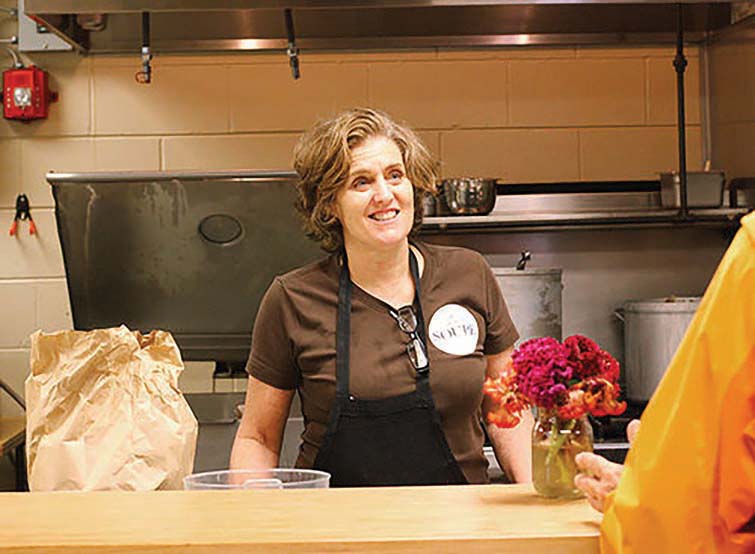
He and DeYoung suggest starting with what you have on hand and building a recipe around that. They also are huge proponents of freezing vegetables that are about to spoil and leftovers from your evening meal and throwing them into the soup pot.
DeYoung’s love of homemade soup began when she was a child visiting relatives in France. Her aunt would take the leftovers from the family’s noon meal and blend it into soup. “That was the dinner,” she said. “She took whatever we had – roasted vegetables or meat and would puree it into a lovey soup.”
Soup itself also freezes nicely, said Pat Brinkman, an associate professor and Extension educator for Ohio State University’s Fayette County Extension office. Consider making a double batch and freezing some for another meal, she said.
Soup is a go-to for Brue at work and at home in the winter because it’s warm and hearty. It makes a filling meal, he said. “There are so many vegetables and nutrients that you can pack into soup that you can’t get in other meals,” he said.
While the vegetables contribute to a soup’s nutritional value, it’s important to look at the health value of the other ingredients, Brinkman said. Consider substituting heavy cream with milk or even evaporated skim milk for a healthier version, she said. If a recipe calls for sautéing vegetables in butter before adding the stock, try using olive oil to reduce the fat content of the dish. She recommends trying to reduce the salt content as well.
“Try to cut back on salt by adding more herbs and spices,” she said. “Taste it before you start thinking you need to add salt.”
Ideas for making soup healthier:


The guide includes a farm driver checklist, overview of state and federal regulations and exemptions, CDL qualifications and more.
Read More


Mary Klopfenstein of Delphos has been named Young Ag Professional and Ag Literacy Program Specialist for Ohio Farm Bureau.
Read More

The plan has been updated to give sole proprietors access to more rate stability and a smart solution that offers potential savings on health care.
Read More

The American Farm Bureau Federation, in partnership with Farm Credit, is seeking entrepreneurs to apply online by June 15 for the 2025 Farm Bureau Ag Innovation Challenge.
Read More

Adele Flynn of Wellington has been elected treasurer of the Ohio Farm Bureau Federation and now holds the third highest elected office in Ohio’s largest and most influential farm organization.
Read More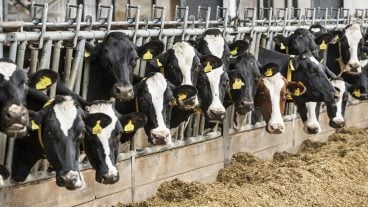
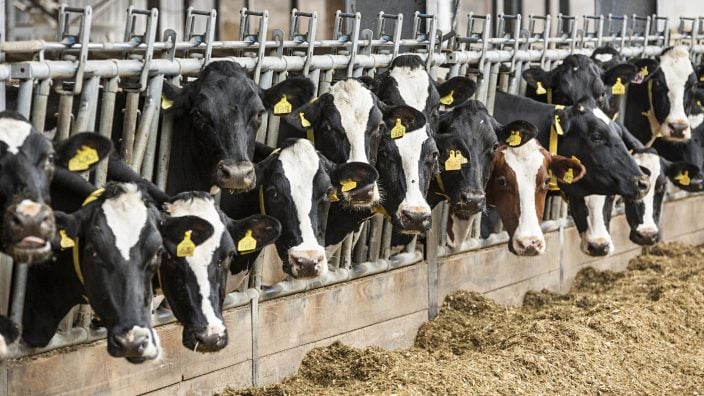
Producers are urged to work with their veterinarian to practice enhanced biosecurity measures and review and limit cattle movements within production systems.
Read More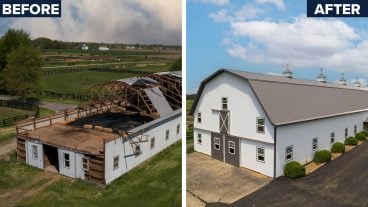
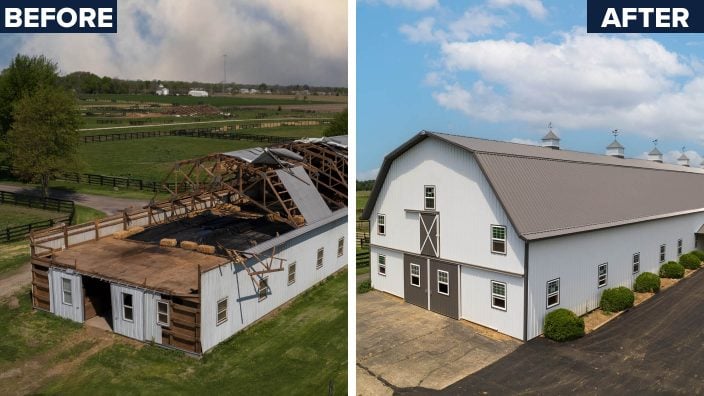
The changing seasons bring with them the need to thoroughly inspect pole barns for any damages that may have occurred during the winter months.
Read More
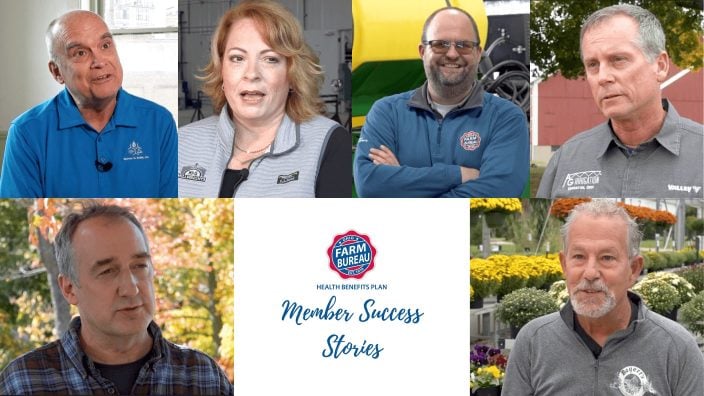
Hundreds of Ohio businesses and sole proprietors are raving about Ohio Farm Bureau’s Health Benefits plan with lower, predictable costs and easy enrollment and administration options.
Read More
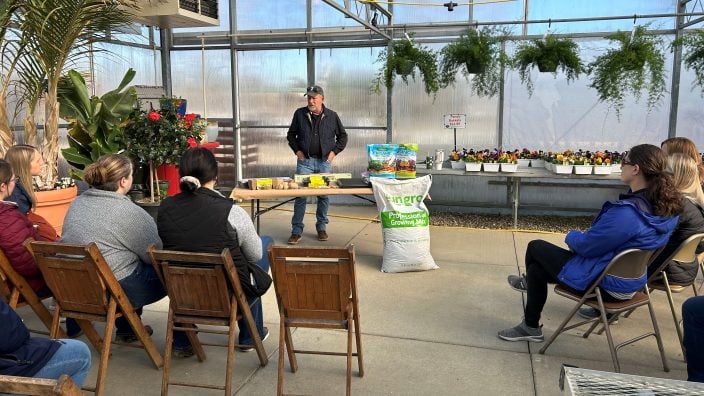
AgriPOWER Class XIV spent a few days in March in Medina and Wayne counties learning more about northern Ohio agriculture from leaders in Ohio Farm Bureau.
Read More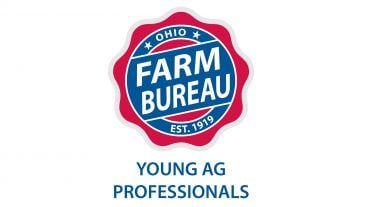
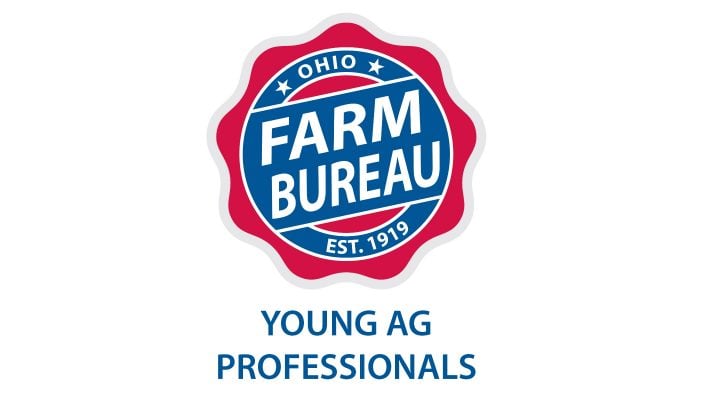
Leading Ohio Farm Bureau’s 2024 YAP State Committee are Luke and Kayla Durbin of Coshocton County, Tim and Sarah Terrill of Montgomery County and Carly Fitz of Perry County.
Read More